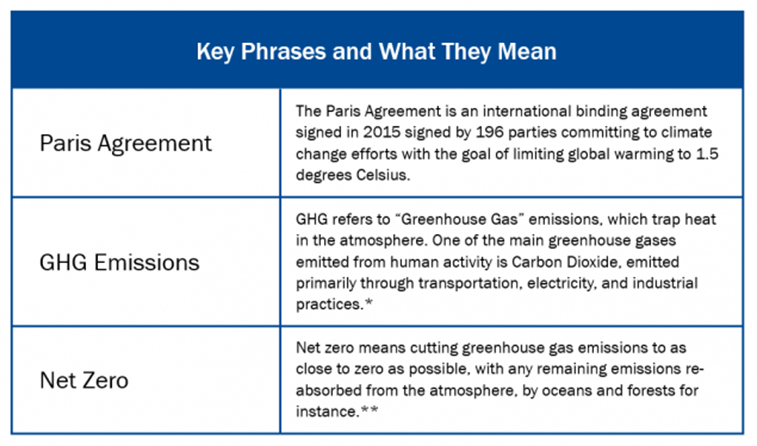Navigate COP27 takeaways for businesses: combat greenwashing, address deforestation, reallocate investments. Learn actionable steps for sustainable supply chains.
Annual climate change talks have wrapped up in Egypt earlier this month and once again left the world without a clear resolution to reach the vital targets needed to save the planet.
One increasingly clear point, however: businesses continue to be a crucial piece of the puzzle.
Businesses and corporations were again called out at the annual United Nations Climate Change Conference (COP27) as key players to impose change and tackle carbon emission cutting.
The challenge, however, continues to be how to create actionable steps, especially for businesses heading global supply chains.
We’ve noted the top takeaways for businesses from COP27 to help empower you in your sustainability efforts and getting on the right track toward reducing your carbon footprint.
Problem: Greenwashing. As sustainability efforts have become a focal point for brand credibility, “greenwashing” has increasingly become more prominent as companies promote false efforts to improve their image. At COP27, a new set of guidelines was launched by the International Organization for Standardization (ISO) to mitigate this issue.
Solution: Accurate, Verified Public Reporting. The new guidelines say plans and information relating to emission cutting must be publicly reported and verifiable. Why is emissions data currently problematic? Nearly 90% of greenhouse gas emissions occur upstream in the supply chain — most companies don’t collect this data. But for those that do, there are two methods – each with their own set of tradeoffs. Companies must extend visibility over their entire value chain through Scope 1, 2, and 3 emissions assessments and report on the findings. Actionable steps for improvement can only be taken when there is transparent, holistic data. Which is the right methodology?
Problem: Deforestation. The UN said that by 2025, “businesses, cities and regions with significant land‑use emissions must make sure that their operations and supply chains don’t contribute to deforestation, peatland loss and the destruction of remaining natural ecosystems.” The IPCC estimates deforestation contributes to nearly 11% of greenhouse gas emissions and must be addressed for net zero goals to be possible.
Solution: Focus on Agricultural Assessments. Audits for agriculture sites such as farms and aggregates have not typically been as prominent, but it is vital to shift focus to these sites to ensure environmental impact is being assessed within your supply chain. Agricultural sites have been harder to assess because of more informal labor practices but pose unique environmental risks such as water use, land conversion and soil erosion. These must be properly tracked within supply chains to ensure transparent environmental data is reported. Learn more about EiQ and Sentinel services to better understand your supply chain risk.
Problem: Improper Investments. The UN reported businesses should be aligning their investments with the climate targets and “greatly scaling their investments in the clean energy transition in developing countries.” Because climate change efforts have posed a challenge for businesses with large supply chains, investments have typically been improperly allocated.
Solution: Assessing Risk and Re-allocating Resources. Consider the small business. Any given consumer goods retailer may have a supply chain that spans thousands of factories. Proper risk assessment requires robust data and enhanced technology to help segment your supply chain and readjust investments to the areas where you can make the most impact in mitigating risk. This requires shifting from a “one-size-fits-all” approach for your supply chain to dividing it into focused areas based on risk factors such as risk management and inherent risk. What position has your company taken towards your small and medium enterprises? Learn more about segmenting your supply chain in EiQ.
“We urgently need every business, investor, city, state and region to walk the talk on their net zero promises. We cannot afford slow movers, fake movers or any form of greenwashing.” António Guterres, UN Secretary General said in a report released this week from the UN “Expert Group” for Net-Zero Commitments.

* source: Overview of Greenhouse Gases | US EPA
**source: Net Zero Coalition | United Nations
